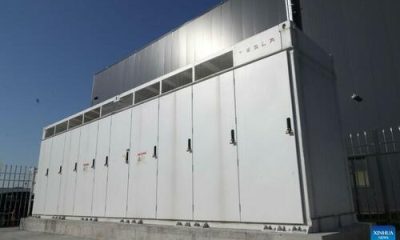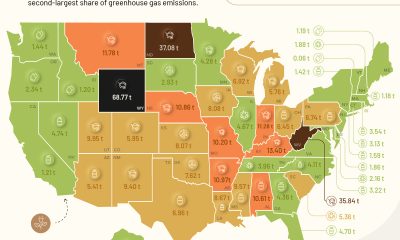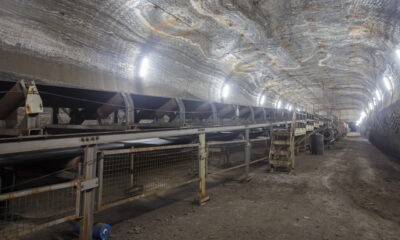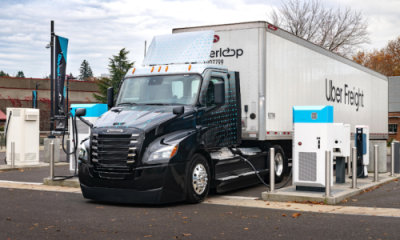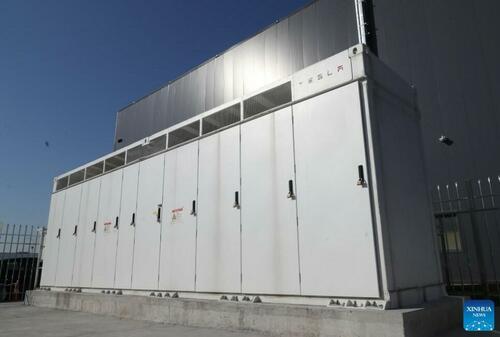Energy & Critical Metals
German Electricity Imports Hit New Record As Nuclear Phase-Out Increases Production Cost
German Electricity Imports Hit New Record As Nuclear Phase-Out Increases Production Cost
Authored by Thomas Brooke via Remix News,
Despite…
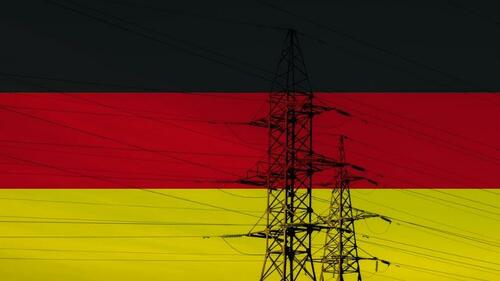
German Electricity Imports Hit New Record As Nuclear Phase-Out Increases Production Cost
Authored by Thomas Brooke via Remix News,
Despite closing its nuclear power plants to focus on renewable energy production, more than a fifth of imported electricity last month was produced from nuclear power…
Germany is importing more electricity than ever before after purchasing a record 6,505 gigawatt hours from abroad in August, according to the Federal Network Agency.
The federal government has replaced much of the electricity produced by its recently closed nuclear power stations with imported electricity, almost half of which was ironically produced using nuclear power and fossil fuels.
This resulted in a significant electricity trade balance deficit, with the country importing €557 million worth of electricity more than it exported to its EU neighbors last month.
Electricity imports typically occur through the construction of transmission lines or undersea cables that connect power grids across national borders. The energy can be generated from various sources including hydroelectric, nuclear, fossil fuels such as gas and coal, or renewable energy.
And despite the German federal government seeking to prioritize renewable energy sources to generate power, evidenced by its policy decision to shut down the country’s remaining nuclear power plants earlier this year, 21 percent of the imported electricity last month was generated by nuclear power and 28 percent was generated by burning coal and gas, according to the Bild newspaper.
Chancellor Olaf Scholz sought to play down concerns over rising imports back in July, claiming that “every year there are phases in which we buy electricity from other countries.”
However, electricity imports into Germany have increased significantly since the closure of the country’s nuclear power plants on April 15.
As Tim Meyerjürgens, the managing director of transmission system operator Tennet, explained, the rising imports don’t necessarily imply that Germany isn’t capable of generating enough electricity itself, but they do “say something about the price of production,” namely that is has become more expensive.
Following the nuclear phase-out, much of Germany’s electricity has been produced through natural gas and coal-fired plants when renewable energy production hasn’t been viable.
“These are often more expensive than renewables and nuclear power abroad,” Meyerjürgens explained, implying that the federal government is approving imports of nuclear-produced electricity when it could have simply produced this itself with domestic nuclear plants at a cheaper rate.
Tyler Durden
Mon, 09/04/2023 – 04:35
renewable

Uranium Exploration Company Announces Additional Staking in the Athabasca Basin
Source: Streetwise Reports 12/22/2023
Skyharbour Resources Ltd. announced an update from its Canada-based Falcon Project along with additional…
Tesla Launches New Mega Factory Project In Shanghai, Designed To Manufacture 10,000 Megapacks Per Year
Tesla Launches New Mega Factory Project In Shanghai, Designed To Manufacture 10,000 Megapacks Per Year
Tesla has launched a new mega factory…
Giving thanks and taking stock after “a remarkable year”
An end-of-year thank you to our readers, industry colleagues and advertisers before Electric Autonomy breaks from publishing until Jan. 2
The post Giving…


